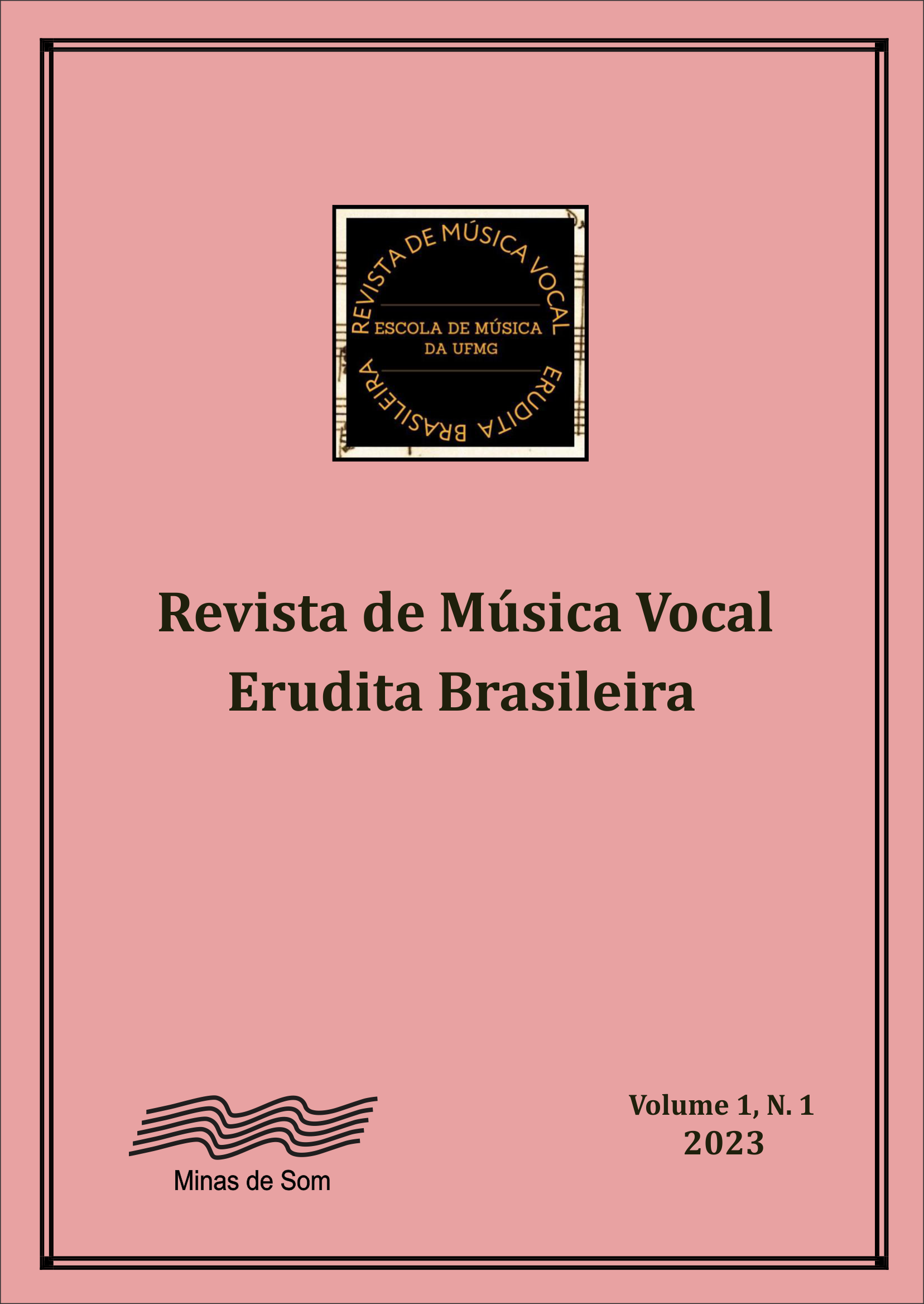Africanias at a crossroads
the black presence in concert vocal music - an autoethnographic report
DOI:
https://doi.org/10.35699/1.1.2023.48616Keywords:
Africanias, Brazilian Vocal Music, Afro-Brazilian music, Performance.Abstract
The current paper describes the paths taken in the research, preparation and performance of an Afro-centered recital, based on a methodological approach developed by the research group Africanias UFRJ, crossing information about the selected piece (work, composer or lyricist) with the menu and the mandatory curriculum program for the bachelor's degree in singing. Works were selected that presented one of the following aspects: linguistic, discursive, musical or historical-documentary features that ensured black representation in concert vocal music. Furthermore, an autoethnography of the recital was carried out, recorded in a field diary. With this work, we illustrate the importance of, from different epistemologies, bringing perspectives and approaches to the performance of vocal music, expanding the possibilities of this field of knowledge.
Downloads
References
- Livros
BRASIL. Lei n. 5869 de 11 de janeiro de 1973. Código de processo civil. Cap. 1, Seção 1, artigo 156. Disponível em
https://www.planalto.gov.br/ccivil_03/leis/l5869.htm. Acesso em 27/10/2023.
BRASIL. Lei n. 13105 de 16 de março de 2015. Código de processo civil. Cap. 1, Seção 1, artigo 192. Disponível em
https://www.planalto.gov.br/ccivil_03/_ato2015-2018/2015/lei/l13105.htm. Acesso em 27/10/2023.
Capítulo de livro
BONVINI, Emilio. Línguas africanas e português falado no Brasil. In África no Brasil. A formação da língua portuguesa. Editora Contexto, São Paulo, 2008.
CASTRO, Yeda Pessoa de. Africanias: acolhendo as línguas africanas. In: OLIVEIRA, Jurema. Africanidades e brasilidades: literaturas e linguística. Org. Curitiba: Appris, 2018.
CHINI, Alexandre; CAETANO. Marcelo Moraes. Argumentação Jurídica indo além das palavras. Brasília, Edição do autor, 2020.
GLISSANT, Edouard. Introdução a uma Poética da Diversidade. Editora UFJF, Juiz de Fora, 2005.
HOUAISS, ANTONIO. O Português no Brasil: Pequena enciclopédia da cultura brasileira. 2. ed. Rio de Janeiro, Unibrade, Unesco,EDUERJ, 1988.
- Artigo em Periódico
GONZALEZ, Lélia. A categoria político-cultural de amefricnidade. Tempo Brasileiro, Rio de Janeiro, n. 92, 93 (jan-jun), p.96-82, 1988.
- Trabalho em Anais de Evento
ADOUR DA CAMARA, Andrea Albuquerque. Música, Memória e Africanias: o canto e a canção. Seminário Internacional Acolhendo as Línguas Africanas - V SIALA, 2014, Salvado Bahia. Disponível em www.siala.uneb.com.br. Acesso em 30 de setembro de 2014.
- Partitura manuscrita
BEZERRA, Rafael. Pegi-Gan. Rio de Janeiro, 2023. Partitura manuscrita.
- Vídeo
RECITAL DE FORMATURA AFRICANIAS EM ENCRUZILHADA: a presença preta na música vocal de concerto. MARIA, Paulo. Orientação ADOUR, Andrea. Rio de Janeiro, 2023. Disponível em
https://www.youtube.com/playlist?list=PLTb7cKB_qhwB6T2Ta6BYvlQ-38sfTbyjh
- Entrevista
MARIA, Paulo. Diário de campo de Paulo Maria entre 2022 e 2023. Rio de Janeiro. Disponível em https://drive.google.com/drive/folders/1jK6ZlafjWdiIfeXL13lu_no_s71FDOxo?usp=sharing. Acesso em 28 de outubro de 2023.





